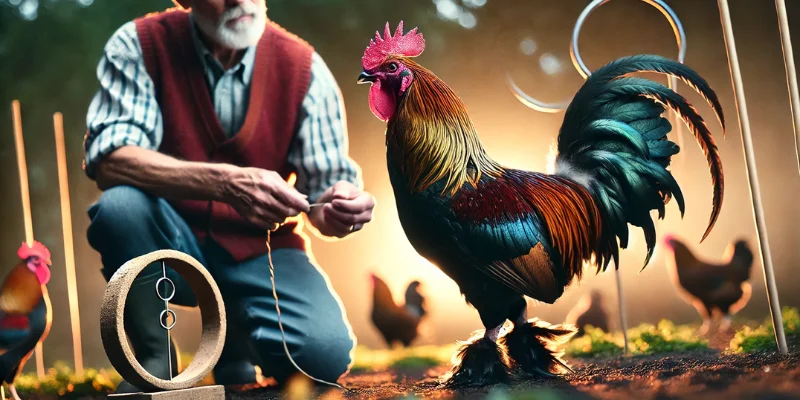
Animal Rights Perspectives: Ethical Concerns Raised by Activists and NGOs
As a rooster breeding specialist in the Philippines, I am Carlos Mendoza. I have dedicated over two decades of my life to the craft of breeding and training roosters for traditional cockfighting. From selecting prime breeds to refining training methods, I know the intricacies of this cultural practice well. But with the rise of online sabong, a wave of ethical debates and criticisms have emerged regarding animal welfare. Activists and NGOs have brought their concerns to light, challenging the industry’s stance and practices.
Let me walk you through their concerns and our realities, as someone deeply immersed in this space.
Traditional vs. Modern Cockfighting: Why the Shift Matters
In the past, cockfighting was largely community-based and closely regulated. Online sabong, however, has transformed it into a national spectacle, broadening access and participation. Animal rights groups argue that the shift to digital platforms has changed the stakes. Increased visibility means greater scrutiny on how roosters are raised, trained, and treated.
The shift to online has blurred the lines between traditional cultural practice and digital entertainment, raising new questions about animal cruelty and exploitation.
Key Concerns:
- Lack of Personal Oversight: Digital platforms limit local oversight, leading to suspicions of mistreatment.
- Increased Frequency of Matches: Some roosters are allegedly pushed beyond their limits due to higher demand.
Ethical Concerns Over Breeding and Genetic Manipulation
As a breeder, I focus on traits like aggression, stamina, and resilience. But many activists believe that selective breeding prioritizes characteristics at the expense of animal welfare. They claim we’re manipulating roosters genetically to make them fight harder, thus causing them undue stress and suffering.
Ethical Questions Raised:
- Is it humane to breed roosters for aggression?
- Are we compromising the animal’s well-being for tradition?
From my experience, selective breeding aims to create well-rounded roosters with good health and physique, but activists still call for transparency in breeding practices.
The Rooster’s Experience: Pain, Fear, and Stress
Animal rights groups frequently highlight the suffering roosters endure in online sabong. They point to the pain inflicted during fights and the long-term physical and psychological effects.
Claims Made by Activists:
- Injuries and Fatalities: Roosters face severe wounds, fractures, or death during fights.
- Stress During Training: High-stress conditioning methods and lack of rest periods between fights.
In contrast, from a breeder’s standpoint, we take every effort to provide proper care. High-quality feed, supplements, and careful monitoring are integral to the rooster’s preparation. Still, activists question whether any amount of care can offset the pain and fear experienced in the ring.
Conditioning and Training Methods: Inhumane or Necessary?
Conditioning is crucial for a fighting rooster, focusing on agility, speed, and endurance. Activists criticize the intensity of these methods, labeling them as inhumane and stressful.
Training Techniques Under Scrutiny:
- Exercise Regimens: Treadmill runs, wing flaps, and sparring sessions for muscle conditioning.
- Mental Training: Simulated fight scenarios to sharpen instincts and aggression.
From my perspective, these methods are designed for the rooster’s growth and vitality. But to critics, it’s forcing animals into unnatural, high-stress roles.
The Debate Over Use of Spurs and Gaffs
One of the primary ethical issues raised by animal rights groups is the use of artificial spurs and gaffs. They argue that these implements increase the severity of injuries, making the sport more violent and inhumane.
Arguments from NGOs:
- Sharpness and Lethality: Spurs cause deep wounds that may lead to painful deaths.
- Purposeful Aggression: Tools like gaffs intensify fights, causing more prolonged suffering.
In response, breeders like myself defend that traditional tools are not used with the intent to harm beyond the sport’s context. However, the criticism remains prevalent.
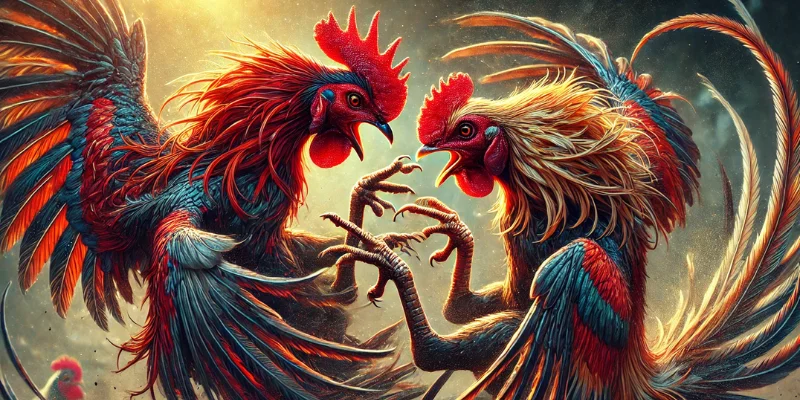 Regulatory Loopholes and Animal Welfare Gaps in Online Sabong
Regulatory Loopholes and Animal Welfare Gaps in Online Sabong
Online sabong Regulations operates differently than traditional cockfighting arenas, often bypassing strict regulations. Activists stress that these loopholes allow for unchecked cruelty.
Identified Gaps in Regulation:
- Inadequate Inspection Protocols: Limited visibility and physical presence at matches.
- Minimal Enforcement of Animal Welfare Laws: Weak penalties for violations and no comprehensive legislation on online practices.
We acknowledge these gaps and the challenges posed by the digital shift. However, breeders like me hope to collaborate with the government to strengthen regulations.
Overworking Roosters: Pushed Beyond Limits for Profit
One rising concern revolves around the frequency of matches. In traditional cockfighting, roosters had rest periods and downtime similar to Sexy Baccarat. But in online sabong, where demand is high, activists argue that roosters are overworked and exploited for financial gains.
Concerns of Overworking:
- Shorter Recovery Periods: Roosters may not be given enough time to heal between fights.
- Psychological Fatigue: The constant fighting cycle leads to heightened anxiety and aggression.
As a breeder, I aim to ensure that the roosters have sufficient rest and recovery. But the increasing frequency of matches in online sabong does raise valid questions about sustainable practices.
Activist Campaigns Against Online Sabong and Their Advocacy for Change
Activists and NGOs are using social media to highlight these concerns. Their campaigns aim to educate the public on rooster welfare and push for stricter animal rights laws.
Activist Strategies:
- Social Media Awareness: Infographics, videos, and testimonials about rooster conditions.
- Lobbying for Legal Reforms: Collaborating with lawmakers to propose tighter regulations.
Although their stance is critical, it has led to constructive conversations. As a breeder, I also want the best outcomes for the industry, the animals, and our traditions.
Collaboration Opportunities Between Breeders and Animal Rights Groups
Despite conflicting perspectives, there is a potential for collaboration between breeders like me and activist groups. Establishing a dialogue could pave the way for more humane practices in online sabong.
Possible Collaborative Actions:
- Creating a Standard Code of Ethics: Outlining responsible breeding and training practices.
- Transparency in Breeding: Sharing insights on conditioning and breeding for public trust.
Through this dialogue, we could find a middle ground that respects tradition while addressing welfare concerns.
The Question of Cultural Identity vs. Animal Rights
In the Philippines, cockfighting is not just a sport; it’s a deep-rooted cultural practice. For breeders like myself, preserving this tradition is integral to our identity. However, animal rights advocates see it as a cultural practice that conflicts with modern ethical standards.
Conflicting Views:
- Cultural Advocates: Cockfighting is part of the Filipino heritage, a tradition worth preserving.
- Animal Rights Advocates: Culture should evolve with society’s ethical progress.
As a breeder, I respect the critics’ perspectives. But at the same time, I wish to preserve the tradition responsibly and humanely.
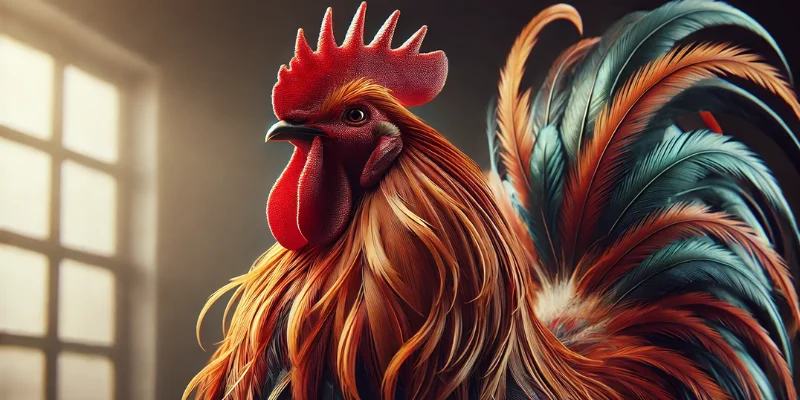 Online Sabong Evolving Ethics and Practices
Online Sabong Evolving Ethics and Practices
Activists and NGOs continue to challenge traditional views on online sabong. The future will likely involve ongoing adjustments to breeding, training, and regulations to align with animal welfare standards.
Potential Changes Ahead:
- New Legislation: Stricter rules on online matches and rooster welfare.
- Ethical Breeding Practices: Breeding for traits like resilience without promoting excessive aggression.
Breeders must adapt and align with shifting societal values. This approach can help preserve the tradition without neglecting animal welfare.
Current Animal Welfare Laws in the Philippines: Gaps and Limitations
I am Carlos Mendoza, a rooster breeding specialist in the Philippines. For over twenty years, I have dedicated myself to raising and training roosters for traditional sabong. During this time, I have become keenly aware of the country’s animal welfare laws, particularly as the landscape of cockfighting shifts with online sabong. These laws were intended to protect animals, but I believe they have certain gaps and limitations that need to be addressed to ensure sustainable practices and improve welfare standards.
The Philippines has basic frameworks for animal protection. The Animal Welfare Act of 1998 (Republic Act 8485) remains the core legislation concerning the humane treatment of animals. This Act was later amended by Republic Act 10631 in 2013 to provide broader definitions and stricter regulations on animal cruelty.
Key Provisions in the Animal Welfare Act:
- Prevention of Cruelty: Mandates humane treatment of animals in all circumstances.
- Regulation of Facilities: Ensures proper licensing of breeding, training, and slaughter facilities.
- Penalties for Violations: Imposes fines and imprisonment for abuse and neglect cases.
While these provisions exist on paper, their real-world application remains inconsistent, especially with the advent of online sabong.
Inadequate Enforcement and Monitoring Mechanisms
One of the biggest challenges lies in the enforcement of these laws. In theory, animal welfare officers and law enforcement agencies are tasked with monitoring and ensuring compliance. In reality, their presence is minimal, and they lack resources to conduct regular inspections, particularly in online sabong operations.
Issues with Enforcement:
- Limited Animal Welfare Officers: A shortage of trained officers to oversee compliance in both urban and rural areas.
- Corruption and Influence: The strong cultural ties to sabong and the influence of stakeholders often hinder impartial monitoring.
Without effective enforcement, laws that should protect roosters and other animals remain only partially effective.
Legal Gray Areas in Online Sabong Animal Welfare Regulations
With online sabong gaining popularity, the legal landscape has not fully caught up with the digital transformation. The existing laws were primarily designed for traditional cockfighting arenas, leaving online platforms relatively unregulated.
Examples of Legal Gray Areas:
- Licensing and Registration of Online Platforms: Loopholes in licensing processes allow certain online operators to bypass regulations.
- Remote Matches and Inspection: The lack of physical oversight in remote fights creates difficulties in monitoring animal welfare standards.
As a breeder, I worry that these gaps in regulation make it difficult to uphold consistent welfare standards.
Limited Focus on Breeding and Conditioning Standards
The current laws focus more on preventing visible acts of cruelty and less on breeding practices or training standards. However, breeders like myself understand that the well-being of a rooster begins with how it is bred and conditioned.
Breeding Concerns Raised:
- Lack of Regulations on Genetic Practices: Selective breeding for aggression or stamina is not explicitly addressed in existing laws.
- Training Protocols Not Standardized: Laws do not establish guidelines for humane conditioning methods.
Without legal guidelines on these fronts, there’s room for varying practices that may compromise welfare.
Gaps in Protection Against Overworking and Fatigue
The Philippine Animal Welfare Act primarily targets direct acts of cruelty but falls short in addressing the overworking and fatigue of roosters. This becomes increasingly relevant in online sabong, where the frequency of matches can be intense.
Points to Consider:
- Absence of Rest Period Mandates: Laws do not specify required rest or recovery periods between matches.
- Minimal Oversight in Conditioning Programs: No clear regulation on training intensity or fight readiness.
In my experience, consistent care and rest are crucial for a rooster’s longevity and health, but the absence of these protections in the law leaves it up to breeders to set their own standards.
Conflicts with Cultural Practices and Loopholes in the Law
The strong cultural ties to sabong in the Philippines have influenced the way laws are structured and enforced. Many animal welfare laws are designed to protect animals without significantly disrupting traditional practices. However, activists argue that these cultural exceptions lead to loopholes.
Cultural Conflicts Observed:
- Permitted Use of Spurs: The use of traditional spurs remains legal, despite activist pressure to ban them due to injury risks.
- Exemptions for Religious or Cultural Events: Certain sabong practices remain exempt from animal cruelty laws if linked to cultural events.
While cultural exemptions preserve traditions, they also open the door to potential ethical violations.
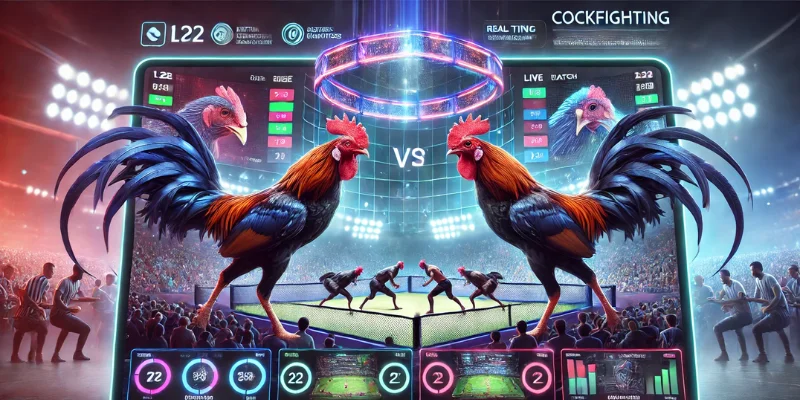 Lack of Transparency and Accountability in Online Sabong Platforms
Lack of Transparency and Accountability in Online Sabong Platforms
Online sabong has introduced a layer of anonymity that complicates accountability. Traditional cockfighting venues typically have licensing bodies, while online platforms operate more covertly, leaving room for exploitation and cruelty without clear consequences.
Transparency Concerns:
- Unregulated Online Operators: The absence of standardized licensing requirements for online operators.
- No Clear Channels for Reporting Abuse: Limited avenues for reporting potential violations on digital platforms.
From a breeder’s standpoint, transparency is crucial for gaining public trust. Clearer reporting channels and accountability could help reduce skepticism.
Inconsistent Penalties for Violations
Although the Animal Welfare Act stipulates fines and imprisonment for cruelty violations, the implementation of these penalties remains inconsistent. Many violators are either not caught or face negligible consequences.
Problems with Penalty Enforcement:
- Low Conviction Rates: A lack of resources and slow legal processes results in few convictions.
- Minimal Fines: Penalties are often too low to deter repeat offenses.
Stronger penalties and consistent application are essential to deter mistreatment and ensure the welfare of animals.
Limited Engagement of Local Government Units (LGUs)
Local government units (LGUs) play a critical role in enforcing animal welfare laws. However, their involvement in monitoring cockfighting events, particularly online sabong, remains insufficient.
Role of LGUs:
- Oversight in Issuing Permits: LGUs are responsible for permitting traditional sabong, but lack authority over online platforms.
- Minimal Training on Animal Welfare Standards: Many LGUs lack trained personnel for monitoring or inspecting online matches.
Breeders, online operators, and LGUs need to collaborate to establish clearer guidelines for responsible practices.
The Need for Updated Laws Addressing Digital Practices
With the rapid growth of online sabong, activists, NGOs, and even breeders like myself recognize that the current laws must evolve. The existing legislation does not comprehensively address the unique challenges of online platforms, remote breeding, or digital cockfighting events.
Proposed Legal Updates:
- Introducing Online Sabong-Specific Regulations: Laws that clearly outline the roles and responsibilities of online platforms.
- Monitoring Remote Matches: Establishing protocols for virtual inspections and ensuring live broadcasts for transparency.
By updating laws to reflect the realities of the digital age, we can foster a safer environment for roosters.
The Call for Comprehensive Animal Welfare Reforms
Animal rights groups and NGOs have been vocal in calling for reforms to strengthen the existing animal welfare laws. They aim to address the gaps and limitations in the current framework, particularly as it pertains to online sabong animal welfare.
Proposed Reforms by Advocates:
- Stricter Breeding Regulations: Guidelines that address genetic manipulation and conditioning practices.
- Higher Penalties and Harsher Sentences: Imposing significant fines and longer imprisonment terms for repeat violators.
As a breeder, I understand the need for reforms that balance tradition with modern welfare standards.
Breeders’ Perspective: Responsibility in Filling the Gaps
From my experience, breeders have a crucial role in maintaining the welfare of roosters, regardless of legal gaps. We are the frontline caretakers, and it’s our responsibility to set ethical standards beyond what the law requires.
Actions Breeders Can Take:
- Adopt Voluntary Best Practices: Establish industry-led guidelines on breeding, training, and match frequency.
- Transparency in Breeding and Training Methods: Share best practices to improve public perception and trust.
By leading the way in responsible breeding, we can help elevate industry standards.
 Online Sabong Public Awareness and Education
Online Sabong Public Awareness and Education
A significant part of addressing the gaps in online sabong animal welfare involves educating the public. Many people, both within and outside the community, lack awareness of what proper animal care entails.
Public Awareness Efforts Needed:
- Educational Campaigns on Animal Welfare Laws: Information on existing regulations and gaps.
- Training Workshops for Breeders: Promoting humane breeding and training practices.
Through education, we can change attitudes and improve compliance across the industry.
Opportunities for Collaboration Between Activists, Breeders, and Lawmakers
Although activists and breeders often stand on opposite sides of the debate, there are opportunities for collaboration. By working together, we can create meaningful change.
Collaborative Actions:
- Establish a Multi-Stakeholder Committee: A dedicated body involving breeders, activists, and lawmakers to develop welfare guidelines.
- Periodic Policy Reviews: Regular evaluations of laws to keep up with changing industry practices.
Collaboration could lead to stronger regulations that benefit both roosters and the tradition of sabong.
Breeding, Training, and Handling in Online Sabong
I am Carlos Mendoza, a rooster breeding specialist with decades of experience in the traditional art of sabong. Over the years, I’ve witnessed how breeding practices have evolved alongside the rise of online sabong. As the sport transitions to digital platforms, the breeding, training, and handling of roosters are under increasing scrutiny, especially concerning online sabong animal welfare. I’m here to share an insider’s perspective on how these areas are being managed and improved.
The breeding of roosters for sabong requires selecting traits like agility, resilience, and controlled aggression. This careful selection ensures that the rooster is fit for matches, whether in traditional arenas or online sabong events.
Selective Breeding Techniques:
- Prioritizing Health and Vigor: Breeders focus on bloodlines that produce strong immune systems and adaptability.
- Physical Traits: Weight, leg strength, and beak formation are critical in determining the suitability of a rooster for competition.
- Temperament Control: Ensuring the rooster isn’t overly aggressive helps manage its performance and handling.
As a breeder, my goal is to enhance these traits without compromising the rooster’s overall welfare.
The Foundation of Quality Breeding
In sabong, pedigree matters. A detailed understanding of a rooster’s lineage helps predict physical and behavioral traits, making it a key part of responsible breeding.
Establishing a Strong Bloodline:
- Genealogical Records: Maintain detailed records to track traits like stamina, aggression, and resistance to injuries.
- Crossbreeding for Versatility: Combining bloodlines that complement each other in terms of speed and endurance.
Pedigree analysis not only affects competitiveness but also helps manage hereditary health issues.
Ethical Handling During Breeding: Caring for the Hen and Rooster
Responsible breeding goes beyond selecting the right roosters. It also involves ensuring the hens and roosters are well-cared-for during the breeding process.
Breeder Responsibilities:
- Feeding and Nutrition: Providing high-quality feed with balanced nutrients for both hens and roosters.
- Rest and Stress Management: Rotating breeding cycles to give birds rest and recovery time.
Ethical handling improves not just the welfare of the animals but also the quality of offspring.
Conditioning Roosters for Online Sabong Matches
Training is crucial in preparing roosters for the intensity of a match. In online sabong, the expectations for performance and endurance are even higher due to the extended reach of digital audiences.
Training Regimens:
- Endurance Building: Treadmill exercises and wing flaps strengthen leg muscles and improve stamina.
- Reaction Time Drills: Quick reflexes are crucial, so breeders conduct agility drills that improve eye-foot coordination.
These regimens are designed to enhance physical conditioning while keeping stress levels manageable.
Handling Practices: Maintaining Rooster Welfare During Training
Handling roosters correctly during training and matches is vital. Mistakes or rough handling can result in injuries or long-term psychological effects on the roosters.
Key Aspects of Humane Handling:
- Minimizing Rough Contact: Using gentle techniques when positioning or examining roosters.
- Cooling and Hydration: Monitoring roosters for overheating and ensuring proper hydration between exercises.
Proper handling builds trust between the breeder and the rooster, reducing stress and improving performance.
Online Sabong’s Impact on Rooster Training and Match Preparation
The rise of online sabong has changed how matches are scheduled and managed. With the increased frequency of matches, maintaining the well-being of roosters becomes even more critical.
Adapting to Online Sabong Requirements:
- Flexible Training Schedules: Tailoring training sessions to fit unpredictable online match timings.
- Rest Days and Recovery Time: Implementing mandatory rest days to avoid overworking the roosters.
As a breeder, I need to stay updated on digital trends to align training programs with online demands.
Evaluating Roosters for Match Readiness
Not all roosters are ready for the ring at the same time. Assessing their readiness is crucial to preventing overexertion and injuries.
Criteria for Match Readiness:
- Physical Condition: Checking leg muscles, weight, and beak sharpness.
- Mental State: Assessing if the rooster is alert and responsive without showing signs of excessive aggression.
By evaluating readiness, I can ensure the rooster is in peak condition for matches, which minimizes risks.
Rooster Nutrition in Performance and Recovery
A rooster’s diet is the foundation of its strength and resilience. Proper nutrition directly impacts performance, stamina, and recovery after matches.
Nutritional Best Practices:
- Protein-Rich Diets: High-protein feeds combined with natural supplements improve muscle growth.
- Electrolyte Balancing: During conditioning and matches, maintaining electrolyte levels helps prevent dehydration.
Tailored feeding plans are essential to keep the roosters healthy and energetic throughout the season.
Enhancing Rooster Health Responsibly
Supplementation plays a key role in modern breeding, but it must be done ethically and responsibly to avoid compromising health.
Common Supplements:
- Vitamins and Minerals: Boosting immune system strength and reducing fatigue.
- Natural Stimulants: Carefully used to enhance alertness and response time without causing harm.
As a breeder, I prioritize safe and natural supplements to maintain a balance between performance and welfare.
Handling Injuries and Health Issues
Injuries are inevitable in cockfighting, but their management can significantly affect a rooster’s quality of life. Quick and competent care is crucial.
First Aid Techniques for Roosters:
- Immediate Wound Care: Applying antiseptics and monitoring wounds to prevent infection.
- Fracture Management: Stabilizing and supporting fractures to promote healing.
Being knowledgeable in rooster healthcare is vital to reducing long-term effects from injuries.
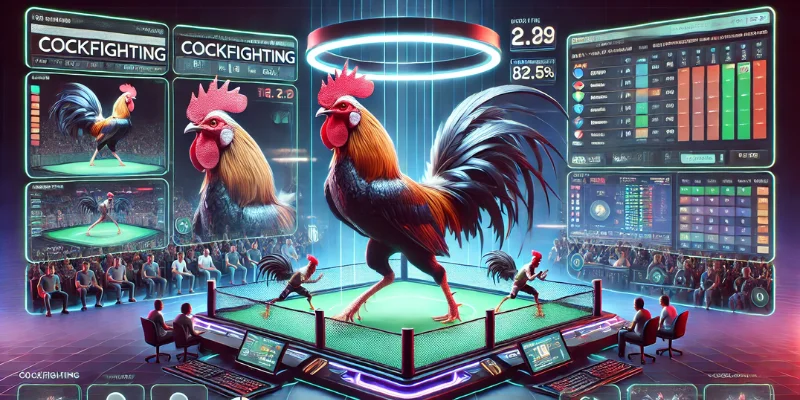 Psychological Conditioning for Online Sabong Roosters
Psychological Conditioning for Online Sabong Roosters
Physical training is not the only aspect breeders focus on. Psychological conditioning is equally crucial to mold the rooster’s instincts and aggression levels.
Behavioral Training:
- Controlled Sparring: Gradual exposure to fights to build confidence and reduce fear.
- Socialization Techniques: Training roosters to tolerate the presence of handlers and other roosters.
This approach to psychological conditioning reduces stress and improves focus during matches.
Humane Practices in Transport and Housing
How roosters are housed and transported affects their overall well-being. Stressful conditions can lead to poor performance or health issues.
Best Practices for Housing and Transport:
- Spacious Coops: Ensuring enough space to move and spread wings reduces stress.
- Safe Transport Methods: Using padded crates and minimal handling during travel to prevent injuries.
Proper housing and transport practices contribute significantly to online sabong animal welfare.
Adapting Handling Techniques for Online Sabong Requirements
Handling techniques are evolving due to the increasing prevalence of online sabong. Since online matches are often live-streamed, the scrutiny on handling practices has grown.
Adapting Handling Methods:
- Calm Pre-Match Checks: Maintaining calmness during pre-match inspections to reduce rooster anxiety.
- Visible Care Practices: Demonstrating humane handling during live streams to build audience trust.
As a breeder, I see this transparency as an opportunity to reinforce responsible handling practices.
The Financial Stake Versus Ethical Considerations
As a breeder in the Philippines, I, Carlos Mendoza, have dedicated my life to the traditional art of sabong. In recent years, the shift to online sabong has altered the landscape, introducing new economic opportunities and fresh ethical challenges. Balancing the financial aspects of the sport with online sabong animal welfare considerations is now a central issue, both for breeders like me and for society at large.
The rise of online sabong has turned cockfighting into a lucrative industry. Digital platforms provide widespread accessibility, attracting local and international bettors.
Economic Contributions:
- Revenue for Digital Platforms: Online sabong generates significant income for digital betting sites.
- Breeder Livelihoods: Breeders earn income through winning roosters, selling champions, and consultancy fees.
- Government Revenues: Sabong-related taxes and licenses contribute to local economies.
This economic growth underscores the importance of sustaining the sport while balancing ethical standards.
Financial Pressures on Breeders: Pushing the Boundaries?
Breeders invest considerable time, effort, and resources into raising top-performing roosters. For many, the pressure to meet high stakes and financial expectations can push them towards extreme practices.
Common Financial Pressures:
- High Cost of Maintenance: Nutrition, supplements, and medical care require substantial ongoing expenses.
- Breeding Quality and Competition: Breeding premium roosters can yield high rewards but comes at a significant cost.
This economic reality raises questions about whether some breeders prioritize profit over rooster welfare.
Cultural Roots and the Social Role of Sabong in the Philippines
Sabong is more than a sport; it’s a social and cultural institution in the Philippines. For centuries, cockfighting has been a part of the community’s collective identity.
Cultural Importance:
- Family Traditions: Breeding and fighting roosters are passed down through generations.
- Social Gatherings: Sabong events serve as communal gatherings that reinforce relationships.
However, with increased scrutiny on online sabong animal welfare, cultural significance faces a modern ethical dilemma.
How Online Sabong Amplifies the Economic Scale
Online sabong has brought cockfighting to a broader audience. Bettors from anywhere can now participate in matches through digital platforms, increasing the overall financial stakes.
Expanded Economic Scale:
- Higher Betting Pools: Digital platforms offer larger betting opportunities, leading to bigger financial risks and rewards.
- Digital Sponsorships: Influential breeders and trainers can gain endorsements from online platforms.
Yet, with higher stakes comes the temptation to push roosters harder, testing the limits of ethical practices.
Ethics in Breeding and Handling: A Critical Balance
Financial stakes and the pressure to succeed can conflict with the ethical treatment of roosters. As a breeder, I strive to prioritize welfare, but not everyone in the industry does.
Balancing Economic and Ethical Considerations:
- Avoiding Overbreeding: Not pushing hens and roosters beyond sustainable breeding limits.
- Fair Training Practices: Ensuring roosters are given adequate rest and conditioning without excess strain.
Finding this balance between financial goals and humane treatment is crucial for long-term industry sustainability.
The Debate Over Profit versus Rooster Welfare
With the popularity of online sabong, some breeders and operators might prioritize profit over animal welfare. Activists and NGOs highlight this conflict as a growing concern.
Areas of Ethical Conflict:
- Intensive Match Scheduling: Increasing match frequency to capitalize on financial opportunities.
- High-Risk Breeding for Aggression: Breeding specifically for aggressive traits to create “sure winners.”
These conflicts raise important questions about responsible breeding practices in a digital era.
Government Regulations in Balancing Ethics and Economy
The government plays a crucial role in regulating the sabong industry. Effective policies can balance economic benefits and online sabong animal welfare.
Regulatory Considerations:
- Match Frequency Limits: Policies that limit the number of matches per rooster to prevent overexertion.
- Breeder Licensing and Standards: Regulating breeders to ensure ethical and humane practices are maintained.
Without proper oversight, the focus on financial gain could overshadow the importance of animal welfare.
Public Perception: How Online Platforms Influence Cultural Values
Online sabong has exposed the sport to a global audience, inviting new perceptions and debates. Activists are using digital platforms to draw attention to the ethical implications of online cockfighting.
Impact of Public Scrutiny:
- Shifting Attitudes: Growing awareness of welfare issues is changing public perceptions of traditional sabong.
- Pressure on Digital Platforms: Online operators are being pushed to adopt stricter welfare guidelines.
As a breeder, I recognize the need to adapt to these changing attitudes while preserving cultural heritage.
Economic Dependency: Communities Relying on Sabong for Livelihood
In many communities, especially rural areas, sabong serves as an essential source of income and social capital. This dependency complicates the push for ethical reforms.
Economic Impact on Local Communities:
- Livelihood for Small-Scale Breeders: Many small breeders rely on sabong for their daily sustenance.
- Employment Opportunities: Sabong-related jobs include handlers, veterinarians, and platform operators.
Understanding this economic dependency is key to addressing the ethical debates without threatening livelihoods.
Financial Incentives for Ethical Breeding and Handling
To promote online sabong animal welfare, creating financial incentives for ethical practices is essential. Breeders could be rewarded for maintaining higher welfare standards.
Potential Incentives:
- Subsidies for Ethical Breeding: Financial support for breeders adhering to humane breeding and handling protocols.
- Recognition Programs: Awards and recognition for breeders who prioritize welfare in their operations.
Positive reinforcement encourages responsible breeding without compromising economic stability.
Overcapitalization and Exploitation in Online Sabong
The rapid growth of online sabong has led to concerns about overcapitalization. The financial drive to capitalize on the sport can lead to exploitation of both breeders and roosters.
Risks Associated with Overcapitalization:
- Unsustainable Match Schedules: The drive for profits may result in overworked roosters and deteriorating welfare standards.
- Breeder Burnout: Excessive pressure can lead breeders to cut corners or compromise welfare practices.
Mitigating these risks requires long-term planning and strategic policies for industry sustainability.
Ethical Responsibility of Breeders in Upholding Tradition
Breeders like myself hold a special responsibility in preserving the tradition of sabong while upholding ethical standards. We serve as custodians of the sport and its cultural significance.
Breeder Responsibilities:
- Ethical Breeding Choices: Maintaining responsible breeding practices that prioritize health and welfare.
- Honest Communication with the Public: Being transparent about breeding practices to build trust.
By taking ethical responsibility, breeders can help bridge the gap between economic incentives and animal welfare.
Shifting Dynamics: How Online Sabong Changes the Game
Online sabong has changed how roosters are bred, trained, and viewed by society. Breeders must adapt to the new realities brought about by digital platforms.
Changing Dynamics:
- Greater Competition: The rise of digital betting has led to increased competition among breeders and trainers.
- Public Demand for Transparency: Online viewers expect transparency in handling and breeding practices.
Adapting to these changes is vital to preserving the integrity of the sport.
Building a Sustainable Model for the Future
To move forward, the industry must embrace a model that balances economic growth with online sabong animal welfare. This requires collaboration among breeders, operators, regulators, and activists.
Sustainability Goals:
- Developing a Code of Ethics: Establishing industry-wide guidelines for ethical breeding, handling, and match preparation.
- Continuous Policy Review: Updating regulations regularly to keep pace with changing trends and technologies.
A sustainable model will ensure that sabong remains a respected cultural tradition without compromising welfare.
Addressing the Loopholes in Current Sabong Laws
The legal framework in the Philippines was primarily designed for traditional cockfighting arenas. As such, the laws contain loopholes that online platforms can exploit.
Examples of Legal Loopholes:
- Licensing Requirements: Vague requirements for online operators leave room for unregulated matches.
- Weak Oversight for Digital Matches: No clear guidelines for live-streamed fights or remote inspections.
Tightening these loopholes is essential to maintaining consistent welfare standards in the digital space.
Proposed Regulations for Rooster Breeding and Training Practices
A significant focus of legal reforms is on regulating the breeding and training practices to promote ethical standards. Lawmakers and activists propose new rules to standardize conditions for roosters.
Proposed Changes:
- Limits on Breeding Frequency: Regulations to prevent overbreeding that can compromise the health of roosters.
- Training Standards and Inspections: Setting humane training guidelines and conducting periodic inspections.
For breeders like myself, following ethical standards not only preserves rooster health but also maintains public trust.
Conclusion
Online sabong has put cockfighting in the public spotlight like never before. As a rooster breeding specialist, I, Carlos Mendoza, acknowledge the growing concerns raised by activists and NGOs regarding the welfare of these animals. From selective breeding practices to regulatory loopholes, the industry is facing ethical questions that need to be addressed.
The current animal welfare laws in the Philippines provide a foundation but fall short in many critical areas. As a breeder, I, Carlos Mendoza, see firsthand the gaps in enforcement, regulation, and accountability. While the rise of online sabong has brought new challenges, it has also opened opportunities for dialogue and reform.
To achieve a balance between tradition and welfare, breeders, activists, and the government must work together. By updating laws, increasing transparency, and encouraging responsible breeding practices, we can ensure that roosters are treated humanely while preserving a cultural heritage.
In the end, it’s about finding a balance. We can preserve a cultural practice while still respecting animal welfare by adopting humane practices and improving transparency. Open dialogues between breeders, activists, and the government could pave the way for better industry standards.
